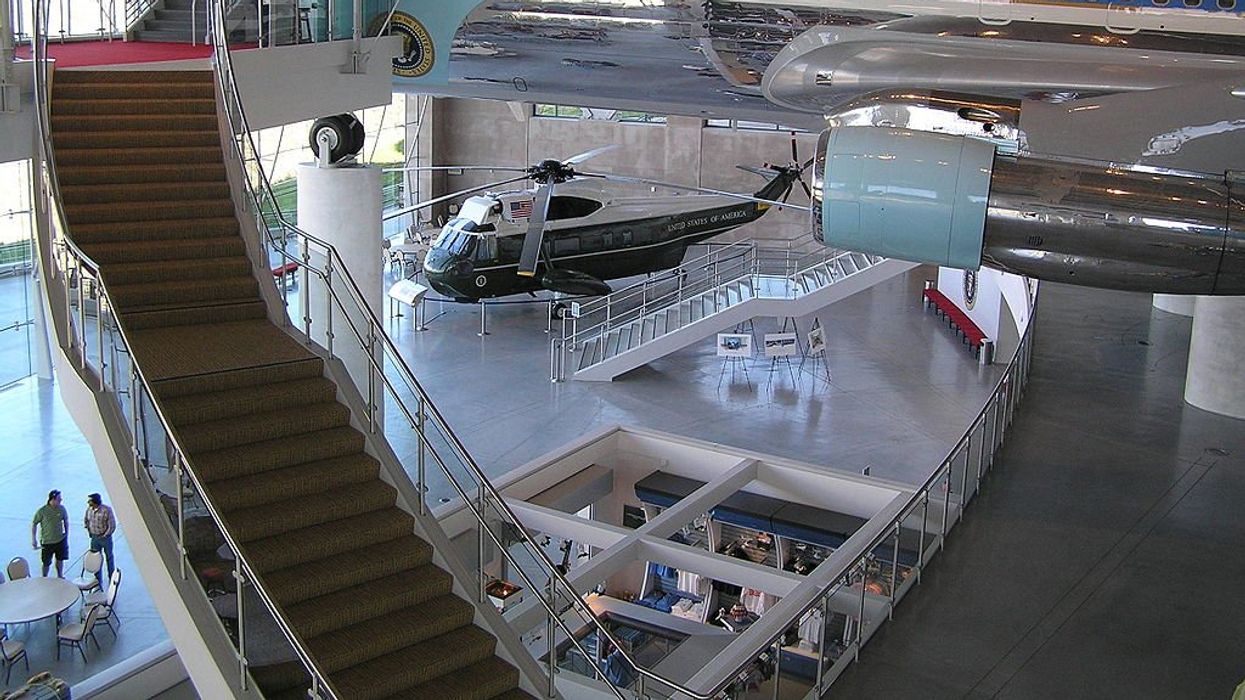Cote is executive director of Thinking Nation, a nonprofit that seeks to shift the paradigm of social studies education by empowering students to think historically.
Pluralism sustains democracy. At its core, pluralism means that multiple individuals or groups can tolerate each other’s differences in order to coexist and work alongside each other. In short, it’s the anecdote to polarization.
On April 18 and 19, civic leaders from around the country convened at the Reagan Library in Simi Valley, Calif., in order to collaborate on ways to strengthen democracy. Citizen University hosts three in person meetings a year for civic leaders to commit to shared success over individualistic aims. As one of the original members of this community, Janet Tran of the Ronald Reagan Presidential Foundation and Institute generously hosted the 41st convening of the National Civic Collaboratory.
As a Southern California native, growing up less than 30 minutes from the library, I was especially excited to join such a diverse group of leaders in my own backyard. In fact, as I told many at the meeting, my high school prom was held in the Air Force One Pavilion. Perhaps that is where my love for civics first blossomed? Thinking through strategies to preserve democracy under Air Force One’s wings definitely felt more meaningful than dancing to the Black Eyed Peas’ 2009 hit “I’ve Got a Feeling.” But maybe they’re connected. Tonight can, in fact, be a good night for civics, I thought, while in the shadow of the presidential aircraft.
High school ruminations aside, I didn't know much about what to expect at my first National Civic Collaboratory. I was aware of the set-up: NCC enables different organizations to share their work with the group, and then members are invited not to provide feedback but to make commitments of support for the civic initiatives shared.
I was anxious to see my own place in this dynamic, eager to learn from others, and open to considering how my own organization, Thinking Nation, could help contribute to the goals of others at the meeting. By the end of our time together, the gathering had exceeded my expectations. The relational atmosphere rooted in commitments to collaboration was life-giving.
The most important thing I gleaned from this convening was the power of pluralism. To confront the parasitic polarization that is currently sucking the lifeblood of our almost 250-year-old democracy, it is imperative that we redeem our nation’s founding motto, e pluribus unum. With this phrase, “out of many, one,” our founders recognized the importance of unity amidst diversity to the sustainability of our country. Unfortunately, I am worried that we are currently failing. The event at the Reagan Library, though, gave me hope that it does not have to remain this way.
In the room, I engaged with social activists, former elected officials, artists, educators, ministers and entrepreneurs. Ideologically, I heard the perspectives of postmodern progressives, modern liberals, as well as fiscal and cultural conservatives. Demographically, there didn’t seem to be any dominating race or ethnicity, either. The room was remarkably diverse.
This makeup, of course, mirrors our nation’s own population. We are a diverse nation of people with different backgrounds, beliefs and aspirations. At the Reagan Library, however, there was a stark difference to what we see on the news. There was no vitriol. People shared ideas without fear of condemnation. They asked tough questions without an assumption of ill intent. Opposing worldviews became opportunities for empathy rather than hatred. Pluralism defeated polarization.
I left the event with a new understanding of how a “civic circle” can grow exponentially. We all can leverage our own resources and networks to further the ultimate aim of preserving and protecting democracy, even if we are not directly involved. This type of pluralism gave me great hope, even as I look at an increasingly polarized populus.
Fortunately, this hope won’t stop with the National Civic Collaboratory. On May 22, the annual Reagan Institute Summit on Education will take place in Washington, DC. Its description summarizes the throughline well: “Against the backdrop of a polarized educational landscape, RISE 2024 seeks to engage parents and families as partners in the education of our learners to co-create a more inclusive and responsive education system.” RISE consistently hosts key stakeholders representing diverse perspectives, providing another opportunity for pluralism to overcome polarization.
At Thinking Nation, we strive to cultivate thinking citizens by shifting the paradigm of social studies education. We want to rethink an education system in order to empower students to engage in their citizenship in the same way I was able to engage in mine over those two days with other civic leaders. The event re-energized my passion for the importance of our everyday work with teachers, students and schools.
To be a witness to e pluribus unum in action at last week’s event was a welcomed experience in this polarizing election year. But this pluralism cannot remain in the same confines of Air Force One. As citizens proud of our nation’s motto, we can model this type of pluralism in our own communities. Political polarization will continue to ramp up in the months before Nov 5, but we can take a stand. Let’s promote pluralism not polarization. Democracy depends on it.




















